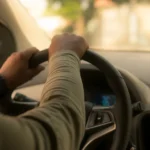The rideshare assault mass tort litigation consolidates claims that platforms such as Uber and Lyft prioritized profits over passenger safety. Between 2017 and 2022, Uber reported more than 400,000 instances of sexual assault. Despite having the data, the tools, and the algorithms capable of identifying these risks, these companies failed to act.
Plaintiffs are focusing on fundamental design flaws and defective safety marketing.
Scope of the Rideshare Assault Litigation
Uber MDL
The Uber Sexual Assault Mass Tort is consolidated as MDL 3084 in the Northern District of California under Judge Charles Breyer’s experienced leadership. As of October 2025, more than 2,700 plaintiffs have joined the MDL with strong judicial management favoring them, and the number of plaintiffs continues to grow. Judge Breyer has ruled against certain advertising-based fraud theories (challenging “don’t drink and drive, call Uber” messaging), though this setback minimally impacts core trial strategies. Judge Breyer’s appointment of Gail Andler as Settlement Master in March 2025 suggests talks may be underway.
The first bellwether trial is scheduled for January 7, 2026, marking a pivotal moment in this litigation. This will be the first of 18 bellwether cases, organized into five trial waves under Judge Breyer’s direction. Trial Wave 1 includes five cases from Arizona, California, Maryland, and Virginia, selected to test the broadest range of liability theories across jurisdictions.
Each case will be tried individually rather than consolidated, allowing every verdict to stand on its own and increase potential impact. With a rolling trial schedule, proceedings will move immediately to the next case if an earlier one settles. In addition to the federal MDL, two coordinated actions are proceeding in California state courts.
Uber JCCP
This is proceeding under Judge Ethan Schulman in California State Court. This serves as the preferred venue for California residents who don’t meet federal diversity requirements. The first trial was held in September 2025 and concluded with the Jury finding Uber not liable for the sexual assault of a woman who alleged she was attacked by her driver. The jury determined that Uber was negligent in its safety measures but that the negligence was not a substantial factor in causing her harm.
Lyft JCCP
The Lyft JCCP is proceeding under Judge Rochelle East and continues to progress without a federal MDL counterpart. Case activity has advanced more slowly than in the Uber proceedings, and no major deadlines are currently scheduled.
Core Legal Theories of the Rideshare Assault Litigation
The litigation centers on systematic failures in driver screening and complaint response systems. Plaintiffs claim the platforms contained fundamental design flaws in their matching algorithms and safety protocols, coupled with defective safety marketing that misled users about actual protection levels.
The key legal theories include:
- Negligent hiring, training, and supervision of drivers
- Failure to act on predictive algorithms identifying high-risk driver-passenger matches
- Concealment of safety risks and repeated failure to deactivate known offenders
- Deceptive safety marketing that created a false sense of security (“Don’t drink and drive, call Uber”)
Defense attorneys focus heavily on ride verification, demanding detailed proof to combat concerns about fabricated receipts. However, this represents a negligible percentage of claims. They also scrutinize GPS data for inconsistencies, comparing plaintiff accounts of incident duration and location with their internal tracking systems.
Internal Documents Reveal Rideshare Safety Failures
Internal documents from Uber and Lyft reveal:
- Predictive algorithms identified high-risk driver-passenger matches but use of the information was never implemented
- Route deviation alerts sent to assault victims with no meaningful response (A Houston horror story)
- “3 strikes rule”: Drivers could be accused of sexual assault 3 times before deactivation
- “Safe Rides Fee” collected $1 per ride that was supposedly going to fund safety, but instead was pocketed as profit
- Heat maps showing high-risk areas and times that were never shared with passengers
- Driver complaint databases showing repeat offenders kept active
- Executive communications detailing “acceptable risk thresholds”
- Safety feature testing that was shelved to protect “gig economy model“
Uber’s own safety reports corroborate the scale of the issue:
- 2018 Report: 6,000 sexual assault allegations in just the 2017-2018 timeframe
- 2020 Report: Still “thousands of incidents”, despite claimed improvements
- 2022 Report: 400,000+ misconduct reports from 2017-2022
Uber admits that it receives an annual average of 3,000-7,000 sexual assault reports. These reports are Uber’s own data, likely underreporting the true scope of the crisis.
The Corporate Cover-Up
The findings below form the foundation of plaintiffs’ claims that Uber and Lyft’s business practices prioritized profits over passenger safety:
- Outsourced background checks to companies bragging 36-hour turnaround
- No fingerprinting, unlike the taxi industry standard
- No driver interviews or training
- Misclassified complaints to avoid sexual assault categorizations
- Failed to suspend drivers with multiple assault allegations
- Marketed false safety (“Don’t drink and drive,” “Stay safe tonight”)
Why the Rideshare Assault Litigation is a Goldmine
Several factors make the rideshare assault mass tort an attractive opportunity for law firms evaluating co-counsel opportunities:
- Mature litigation with established liability theories
- Devastating internal documents have already surfaced
- Deep-pocket defendants
- Sympathetic victims vs. corporate greed narrative
- Punitive damages exposure in most jurisdictions
- Media attention driving settlement pressure
- A $9 million combined settlement involving Lyft and Days Inn hotels in a case concerning an 11-year-old assault victim demonstrates the defendants’ willingness to pay significant sums to avoid trial exposure and further negative attention
The bottom line is that this is a mature mass tort with clear liability, sympathetic victims, and defendants desperate to settle before more trials expose their systematic negligence.
Rideshare Assault Litigation Frequently Asked Questions
- What is the Rideshare Assault Mass Tort?
The rideshare assault mass tort is a coordinated litigation effort against Uber and Lyft, alleging that both companies failed to implement adequate driver screening, ignored predictive safety data, and misrepresented the effectiveness of their safety measures. These failures allegedly created conditions that allowed sexual assaults and other violent incidents to occur during or following rideshare trips.
- Why is this litigation significant for attorneys considering co-counsel participation?
The rideshare assault mass tort is a mature, active litigation with well-established liability theories and significant discovery already complete. Defendants possess the financial resources to satisfy large settlements, and early bellwether results are expected to shape case valuations. Participation now provides firms access to a structured, well-managed mass tort as it enters a decisive phase.
- Where is the litigation taking place?
The federal litigation is consolidated under MDL 3084 in the Northern District of California, overseen by Judge Charles Breyer. As of October 2025, more than 2,700 cases are pending, with the first bellwether trial scheduled for January 7, 2026.
In addition, state-level proceedings are ongoing in California:
- Uber JCCP before Judge Ethan Schulman in San Francisco Superior Court.
- Lyft JCCP before Judge Rochelle East, which continues to progress without a federal counterpart.
Explore Mass Tort Co-Counsel Opportunities
By working with Broughton Partners, your firm gains direct access to qualified retainers, without the administrative burden. Our team runs targeted campaigns across TV, radio, social media, and digital platforms. Every claimant is screened through a 24/7 in-house call center using law firm-approved eligibility criteria, and only pre-qualified retainers are delivered to your team.
Let us help you grow your caseload ethically and efficiently while protecting your license and reputation every step of the way. Contact us today to get started.



